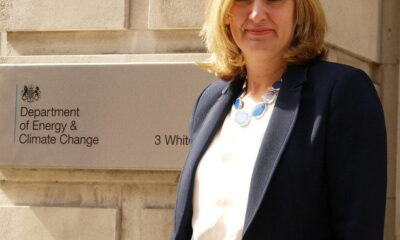

Energy
Are the UK Governments Plans for the Energy Sector Smart?
The revolution in the energy sector marches on, wind turbines and solar panels are harnessing more renewable energy than ever before – so where is it all leading?
The UK government have recently announced plans to modernise the way we produce, store and use electricity. And, if realised, the plans could be just the thing to bring the energy sector in line with 21st century technology and ideologies.
Central to the plans is an initiative that will see smart meters installed in homes and businesses the length and breadth of the country – and their aim? To create an environment where electricity can be managed more efficiently.
The news has prompted some speculation about how energy suppliers will react and many are predicting a price war. This could benefit consumers of electricity and investors, many of whom may be looking to make a profit by trading energy company shares online using platforms such as Oanda – but the potential for good news doesn’t end there.
Introducing New Technology
The plan, titled Smart Systems and Flexibility is being rolled out in the hope that it will have a positive impact in three core areas.
- To offer consumers greater control by making smart meters available for all homes and businesses by 2020. Energy users will be able to monitor, control and record the amount of energy they use.
- Incentivise energy suppliers to change the manner in which they buy electricity, to offer more smart tariffs and more off-peak periods for energy consumption.
- Introduce new standards for electrical appliances – it is hoped that the new wave of appliances will recognise when electricity is at its cheapest and at its most expensive and respond accordingly.
How the Plans Will Affect Solar Energy
Around 7 million houses in the UK have solar panels and the government say that their plan will benefit them as they will be able to store electricity on batteries. The stored energy can then be used by the household and excess energy can be exported to the national grid – in this instance lower tariffs or even payment for the excess energy will bring down annual costs significantly.
The rate of return on energy exported to the national grid is currently between 6% and 10%, but there are many variables to take into account, such as, the cost of battery storage and light levels. Still, those with state-of-the-art solar electricity systems could end up with an annual profit after selling their excess energy.
The Internet of Things
Much of what the plans set out to achieve are linked to the now ubiquitous “internet of things” – where, for example, appliances and heating systems are connected to the internet in order to make them function more smartly.
Companies like Hive have already made great inroads into this type of technology, but the road that the government plans are heading down, will, potentially, go much further -blockchain technology looms and has already proved to be a game changer in the world of currency.
Blockchain Technology
It has already been suggested that the peer to peer selling of energy and exporting it to the national grid may eventually be done using blockchain technology.
“The blockchain is an incorruptible digital ledger of economic transactions that can be programmed to record not just financial transactions but virtually everything of value.”
Don and Alex Tapscott, Blockchain Revolution (2016)
The upshot of the government’s plans for the revolution of the energy sector, is that technology will play an indelible role in making it more efficient, more flexible and ultimately more sustainable.


 Features9 months ago
Features9 months agoWhat is the Eco-Friendliest Option to Wash Your Dishes?

 Environment12 months ago
Environment12 months agoBuilding a Career in Green Construction: Tips and Insights

 News11 months ago
News11 months ago5 Ways Fleet Maintenance Software Can Help Businesses Be More Eco-Friendly

 Features10 months ago
Features10 months agoAddressing Pressing Ethical Concerns with Crypto Exchanges



















